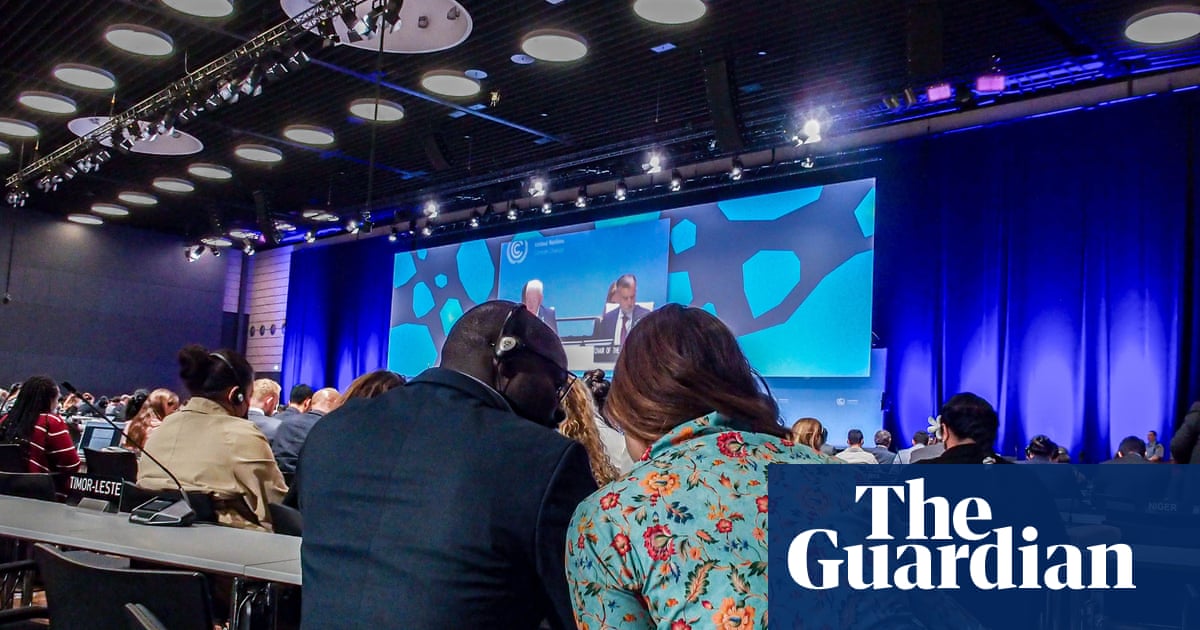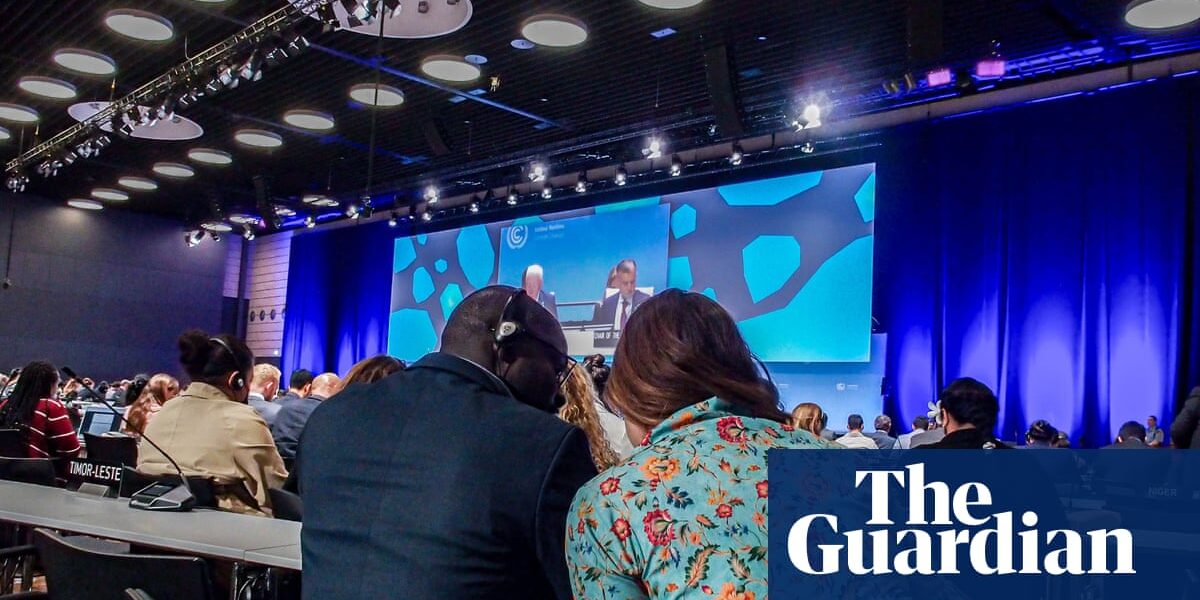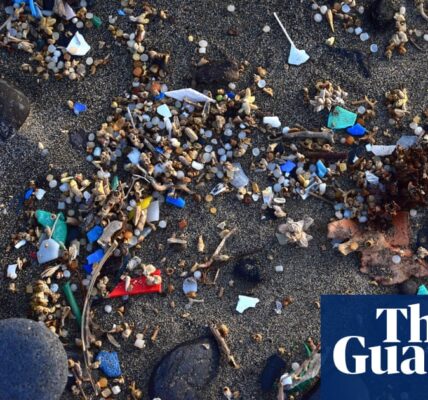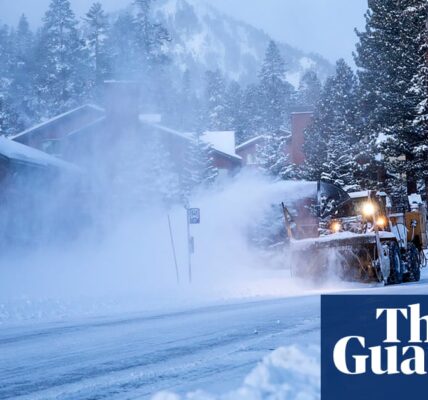
With less than five months to go to the vital Cop29 UN climate summit in Azerbaijan in November, nations gathered in Bonn last week to begin negotiations on one of the last chances for a “course correction” to move away from fossil fuels and avoid the worst ravages of the climate crisis. As the death toll from extreme heat mounted in countries from Saudi Arabia to India, grey-suited officials squabbled in air-conditioned conference rooms over who should pay for the changes needed to shift the world to a low-carbon economy, and cope with the impacts of climate breakdown.
-
1. Climate finance
Trillions of dollars will be needed each year until 2030 to wean the global economy from its reliance on fossil fuels – at least $2.4tn a year for developing countries excluding China, according to a 2022 study. These sums sound enormous, and they are – but they represent only a small fraction of the global economy and they equate roughly to what the world already spends on fossil fuels and high-carbon infrastructure. So if enough existing investment were redirected to low-carbon ends, the battle would be largely won.
While rich countries and China are already taking steps to boost renewable energy and low-carbon technology such as electric vehicles and heat pumps, developing countries are struggling to attain the investment required to cut emissions and protect themselves from the worsening impacts of extreme weather. They will need help to do so, from developed countries, the private sector and other sources of cash.
The task for Cop29, taking place this November, is to come up with a new collective quantified goal on climate finance (NCQG). This is to replace the old climate finance goal, set in 2009, for rich countries to provide $100bn a year to the developing world by 2020, a goal that was finally met in 2022.
But there is no agreement on any of the substantive issues involved in the NCQG. First is the “quantum”, the question of how much finance should be provided. While all agree that trillions are needed, how much should be provided in the form of climate finance from governments is still up for discussion. Rich countries want more to come from the private sector and potentially from innovative sources, such as the carbon markets, taxes on fossil fuels, wealth taxes, frequent flyer levies and shipping levies.
They also want to expand the contributor base for climate finance. Currently, only countries that were classed as developed in 1992, when the UN framework convention on climate change was signed, need contribute to climate finance for the developing world. But the world has changed vastly since then – for instance, China is now the world’s biggest emitter by far, and the world’s second biggest economy, but carries no obligations under the UNFCCC (United Nations framework convention on climate change).
Petrostates such as Saudi Arabia, Qatar and the United Arab Emirates have also grown rich on fossil fuels but few make any contribution to climate finance, with the exception of UAE, which hosted last year’s Cop and made a first contribution. Countries such as South Korea and Singapore have also grown rich but are still classed as developing and therefore eligible to receive rather than provide climate finance, while Russia is home to vast fossil fuel wealth and has filled the coffers of fossil fuel firms bountifully in the last two years by waging war in Ukraine.
One of the problems is that climate Cops are not well-suited to discussions on finance. Countries send their environment ministers and teams, rather than their finance ministries. Cops have no jurisdiction over institutions such as the World Bank and the International Monetary Fund, which will be key in delivering publicly funded climate finance. Ways must be found to draw national finance ministers and international institutions more closely to the climate talks before it is too late.
-
2. Cutting greenhouse gas emissions
If there is to be any chance of limiting global temperature rises to 1.5C above preindustrial levels – which scientists point out is still just about possible, even though a majority of them believe it will not happen – then greenhouse gas emissions must be halved by the end of this decade. Though renewable energy installations are rising at record rates, the world is still burning more fossil fuel.
Under the 2015 Paris agreement, all countries must have national plans to reduce carbon. The current set of nationally determined contributions (NDCs) are inadequate, and must be strengthened – at Cop30, to be held next year in Belem, the Brazilian hosts are hoping that countries will come up with their new round of NDCs, enshrining targets that will enable the halving of carbon necessary.
As Cop29 will not focus on NDCs, governments may be tempted to hold back, but the Brazilians are anxious to ensure the pressure is kept up. For the first time, the three presidencies of the current Cop (Azerbaijan), the last Cop (the United Arab Emirates) and the next Cop (Brazil) are working formally together in a “troika” system to ensure continuity. Many developing countries also see the issues of emissions reduction and climate finance as closely intertwined: without climate finance, they cannot cut greenhouse gas emissions.
-
3. Geopolitics
Looming over all of this year’s climate meetings is the shadow of the US election. Donald Trump withdrew the US from the Paris agreement when he was president, though he started the process late in his term and the withdrawal only took effect as he was departing, and he would do so again even faster in a second term. While the rest of the world would carry on implementing the treaty, the impact of a US departure would be felt deeply, and Trump’s likely dismantling of all of the pro-climate policies that Joe Biden put in place – such as the Inflation Reduction Act that brought more than $360bn investment in renewables and low-carbon efforts – would do even more to sabotage the move away from fossil fuels.
The US has also been one of the biggest providers of climate finance to the developing world in the past – and should be a far bigger provider, according to campaigners, as it is the world’s biggest economy and biggest historical emitter. But getting overseas aid of any kind, and climate finance in particular, past a Republican Congress has been difficult. In an election year, with polls showing a lead for Trump, pushing for higher spending from the US may be counterproductive, as it could be seized on by Trump supporters.
The EU also held elections last week, with rightwing parties performing well, while France is in the grip of a political crisis with the ascendant far right, and Germany’s leftwing government is mired in economic difficulty. Giorgia Meloni, Italy’s leader, took centre stage as president of the G7 summit to present the smiling face of the hard right as the new force to be reckoned with in European politics – and as protests across the continent have shown, one of the key weapons in those parties’ toolbox is to foment a backlash against green policies.
With these tumultuous political forces at work, it will take brave leadership to make the case for the rich countries that caused most of the climate crisis to date to pay for the impacts on the poor world. But there are ways to do this: remodelling economies to transition away from fossil fuels can be a source of prosperity for workers if countries go about it in the right way, and finding money for climate finance now will be far cheaper than paying for the consequences of billions of people being stricken by climate disaster in the coming decades.
-
4. Loss and damage
The impact of the climate crisis on poor countries is increasingly apparent in the form of devastating floods, long-running droughts and fiercer storms. But talks on how to help countries with the cash they need for the rescue and rehabilitation of disaster-stricken communities – known as “loss and damage” funds – have stalled.
At the Cop28 summit in Dubai last year, countries agreed the basics of a loss and damage fund, to be overseen and operated by the World Bank, but have yet to fill it and yet to formalise the set-up.
Little progress was made on loss and damage at Bonn, despite the strong momentum generated at Cop28. However, while debates over the bigger issue of climate finance overall are the main focus of Cop29, filling the loss and damage fund is likely to be seen as a key bargaining chip by many countries, so progress on this issue is tied closely to the overall outcome of Cop29.
-
5. Fossil fuels
The world’s five biggest private sector oil companies alone made an estimated $280bn profit in the two years after the start of the war in Ukraine in February 2022, and though prices have dropped they are still raking in bumper returns. They are huge contributors to the climate crisis. Surely some of those profits could be tapped to help the poor countries on the sharp end of climate chaos?
This idea, which is clearly in line with the widely accepted polluter pays principle, should be uncontroversial. Even the normally conservative International Energy Agency advocated for windfall taxes on oil and gas iafter Russia’s invasion of Ukraine. But the suggestion that it could even be discussed outraged petrostates at the Bonn talks, with Saudi Arabia and the UAE leading the behind-the-scenes ructions.
It was a foretaste of the enormous obstacles countries are likely to throw up to all the forms of innovative finance that are being put forward: wealth taxes, fossil fuel levies, frequent flyer tolls and carbon charges on international shipping.
-
6. Azerbaijan in the spotlight
Oil and gas-rich Azerbaijan will host Cop29, having stepped in after offers to preside by eastern EU states were vetoed by Vladimir Putin. The government’s intention, revealed in the Guardian, is to hold a “peace Cop”, and officials are even hoping for a truce to be declared ending hostilities for the fortnight’s duration of the meeting. This was greeted with raised eyebrows by human rights campaigners, who point to the war between Azerbaijan and neighbouring Armenia, which ended last year with the forced removal by Azerbaijan of about 100,000 people from the disputed Nagorno-Karabakh region.
Campaigners are demanding the release of political prisoners still held by Azerbaijan, whose status is disputed by the administration of Ilham Aliyev, the country’s authoritarian president. Protesters picketed the front of the Bonn talks to make this point.
Though technically a democracy, Azerbaijan is in effect an autocracy with little functioning political opposition, little media or civil society freedom, and a poor record on human rights. Corruption is rife, with the country regularly coming near the bottom of the Transparency International global index.
Source: theguardian.com



